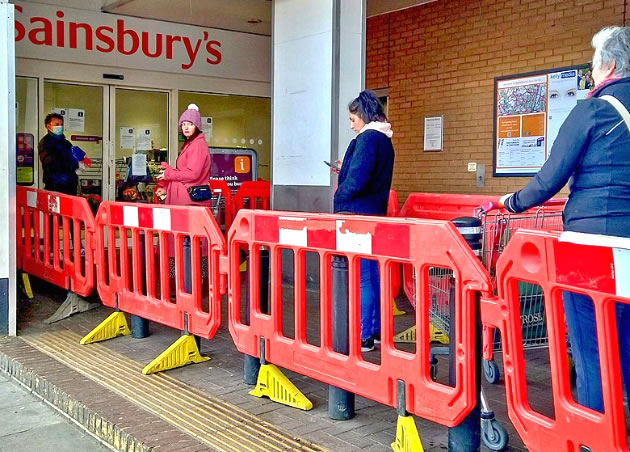Social Distancing Working According to Reports to Tracking App
Number of additional people with Covid-19 symptoms starting to fall
 Picture: Philafrenzy
Picture: Philafrenzy
Social distancing appears to be reducing the spread of coronavirus, early data from a symptom tracking app suggests.
There were half a million fewer people in the UK reporting symptoms on the Covid-19 tracker app on Wednesday than the previous week – down from 1.9 to 1.4 million.
More than 2 million people are using the app, developed by Kings College researchers and health start-up Zoe.
And scientists say the data shows Britain’s lockdown is working – even as deaths and hospital admissions continue to climb.
There were 765 deaths from coronavirus in English hospitals announced this Thursday (April 9), bringing the total to 7,248.
Deaths are also rising in London, with 201 fatalities reported on Wednesday.
But scientists believe there will be a two week lag between reported symptoms falling and deaths going down, because it takes time for the worst cases of the virus to become serious.
The number of calls to 111 has also fallen since late March, according to NHS data.
London is ahead of the rest of the UK in the rate of coronavirus spread, and the app data predicts high levels of Covid-19 across the city.
In boroughs in the west and south west of London rates of infection appear to be lower with just 3.55% of people symptomatic in Hounslow the lowest rate of infection in the capital apart from the City of London.
| Covid-19 Infection Rates Selected London Boroughs | ||
|---|---|---|
| Borough | Reports |
Symptomatic (%) |
| Hounslow | 3,517 |
3.55 |
| Ealing | 5,114 |
4.05 |
| Merton | 4,676 |
3.58 |
| Wandsworth | 10,931 |
4.13 |
| Hammersmith and Fulham | 4307 |
4.40 |
Researchers believe infections are highest in Redbridge, where 5.4 per cent of people are estimated to have the virus.
Harrow (4.81 per cent), Hackney (4.78 per cent) and Newham (4.7 per cent) are also believed to be badly impacted.
Researchers think there are fewest infections in the City of London, estimating just 2.88 per cent of people have the virus.
Hounslow (3.55 per cent), Merton (3.58 per cent) and Havering (3.71 per cent) also appear to be faring better than other parts of the city.
King’s College Professor Tim Spector, lead researcher on the app, said it was “really encouraging” to see reported symptoms start to decrease.
He said: “Even though hospital admissions and deaths are still on the rise, we hope that these figures offer a much needed light at the end of the tunnel.
“We have been totally blown away by the public’s response to the app. On the first day we saw one million people download it – making it one of the most successful first days for an app ever, and already probably the UK’s largest citizen science project.
“The altruism of the UK public combined with modern technology is allowing us to rapidly collect huge amounts of invaluable data to help us better understand this deadly virus.”
Written with contributions from Jessie Matthewson - Local Democracy Reporter
April 11, 2020